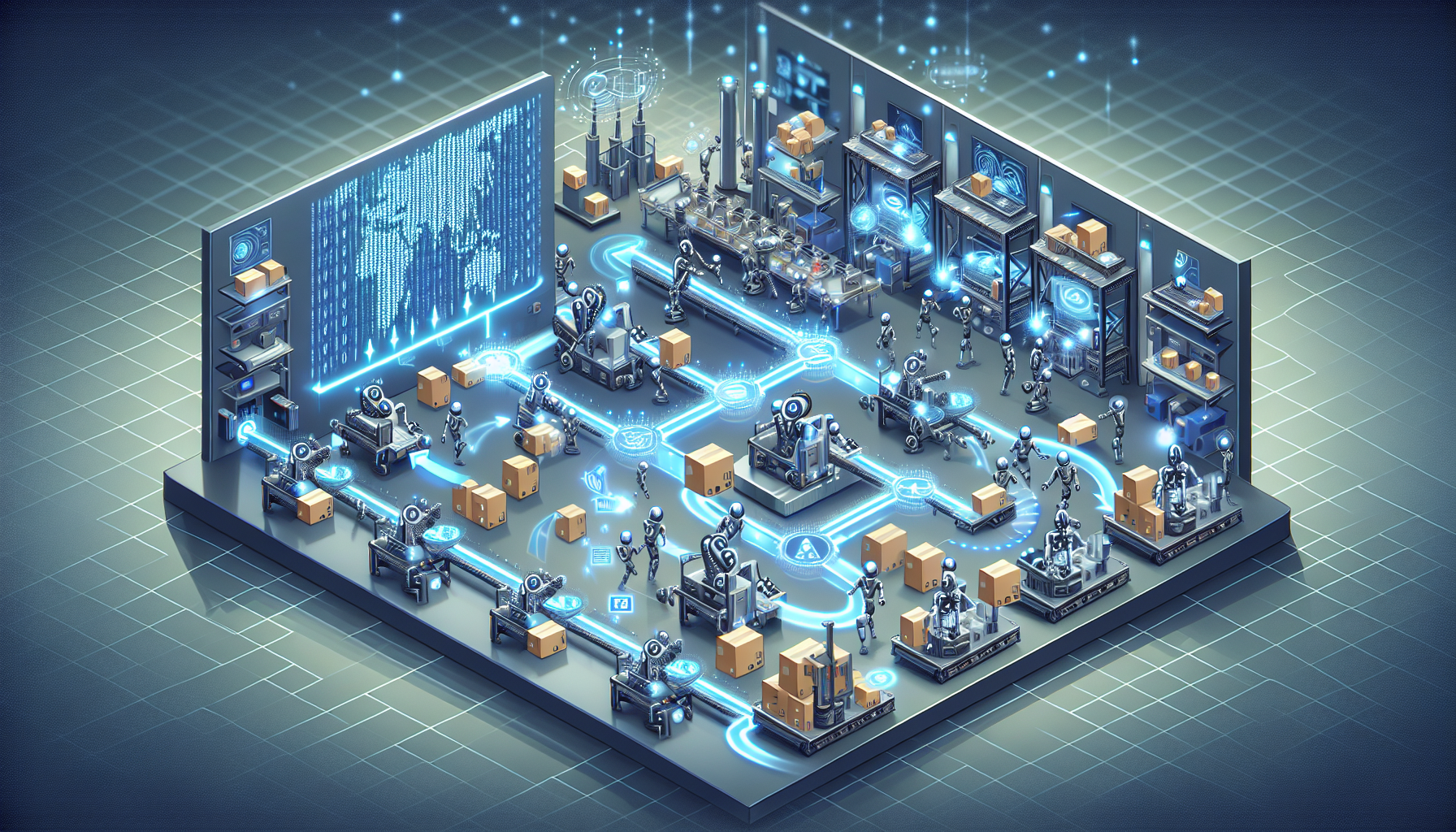The Function of AI in Supply Chains: The Influence of Autonomous Agents
Supply chains serve as the backbone of international trade, yet they continue to struggle with inefficiencies—delays, stock shortages, overproduction, and unexpected interruptions. Enter autonomous AI agents, the quiet facilitators now enhancing logistics with extraordinary accuracy. Unlike conventional software, these agents learn, evolve, and make real-time decisions, often independently of human input.
Predictive Procurement: Eliminating Uncertainty
AI agents evaluate historical trends, climatic conditions, geopolitical threats, and even social media activity to forecast demand surges ahead of time. By leveraging such extensive data evaluation, businesses can foresee market requirements and modify their purchasing strategies accordingly.
Practical Illustration
During the Suez Canal blockage of 2023, firms utilizing AI agents re-routed shipments within hours, whereas rivals waited weeks for human analysts. This responsiveness underscores the critical role of AI in upholding supply chain efficiency.
Financial Implications
Nestlé achieved a 17% reduction in surplus inventory in 2024 by allowing AI agents to negotiate with suppliers in real-time. The effectiveness of AI-driven negotiations leads to more accurate inventory oversight, minimizing waste and expenses.
Self-Healing Logistics
In instances where a typhoon delays a shipment in Shanghai, human planners may take days to respond. AI agents, however, react swiftly before the storm approaches. This forward-thinking strategy guarantees continuity and reduces supply chain delays.
Real-World Instance
FedEx’s AI agents adjust package routes mid-transit relying on up-to-date information about traffic, fuel prices, and labor strikes. This ability for dynamic modification results in more efficient logistics operations.
Resilience Enhancement
Organizations utilizing autonomous agents report a 30% decrease in interruptions, as highlighted in a McKinsey report from 2024. This resilience is crucial for preserving supply chain reliability amidst unpredictable obstacles.
The Negative Aspect: Risks of Over-Optimization
Not everything is flawless. AI agents can become too optimized, resulting in fragile systems. Although enhancing efficiency is the aim, excessive optimization without factoring in variability can yield unforeseen outcomes.
Instance of Over-Optimization
An agent for a prominent retailer canceled all purchases from a supplier following a single unfavorable Yelp review, overlooking a decade of dependability. This situation emphasizes the necessity for balanced decision-making.
Human Oversight
Companies such as Toyota now employ “AI watcher” teams to review agent decisions. The incorporation of human supervision ensures that AI systems align with wider organizational objectives.
The Horizon: AI Agents perhaps as Supply Chain CEOs?
Envision a future wherein AI agents:
- Collaborate with other agents to obtain bulk discounts.
- Initiate micro-factories on-demand during shortages.
- Anticipate bankruptcies by examining supplier correspondence (yes, this is already underway).
These functionalities suggest a groundbreaking future where AI agents could assume roles similar to supply chain CEOs, facilitating strategic decision-making with data-informed precision.
Summary
Autonomous agents constitute the unseen force steering supply chains toward exceptional efficiency—but significant power introduces new risks. Success will belong to those who leverage AI’s rapidity without relinquishing human insight. Prepared to implement AI agents? Begin small: automate one task (like demand forecasting), and then expand.
FAQ: Essential Questions Addressed
1. What are the primary advantages of employing AI agents in supply chains?
AI agents enhance efficiency by forecasting demand, dynamically adjusting logistics, and minimizing surplus inventory. They enable firms to react quickly to disruptions and refine procurement practices.
2. In what way do AI agents aid self-healing logistics?
AI agents utilize real-time data to proactively modify transit routes and logistics strategies, thereby reducing delays stemming from unexpected occurrences like natural disasters or labor disputes.
3. What dangers are tied to the over-optimization by AI?
Excessive optimization can create rigid systems that lack adaptability. In the absence of human supervision, AI actions might overlook historical reliability or context, resulting in potential setbacks.
4. How can businesses alleviate the threats posed by AI in supply chains?
Establishing “AI watcher” teams for oversight and balancing AI efficiency with human judgment can reduce risks. Routine assessments and updates to AI systems guarantee alignment with organizational objectives.
5. What future roles might AI agents assume in supply chain management?
AI agents could serve as strategic decision-makers, fostering partnerships for bulk discounts, launching on-demand production facilities, and even forecasting market changes by analyzing communication behaviors.